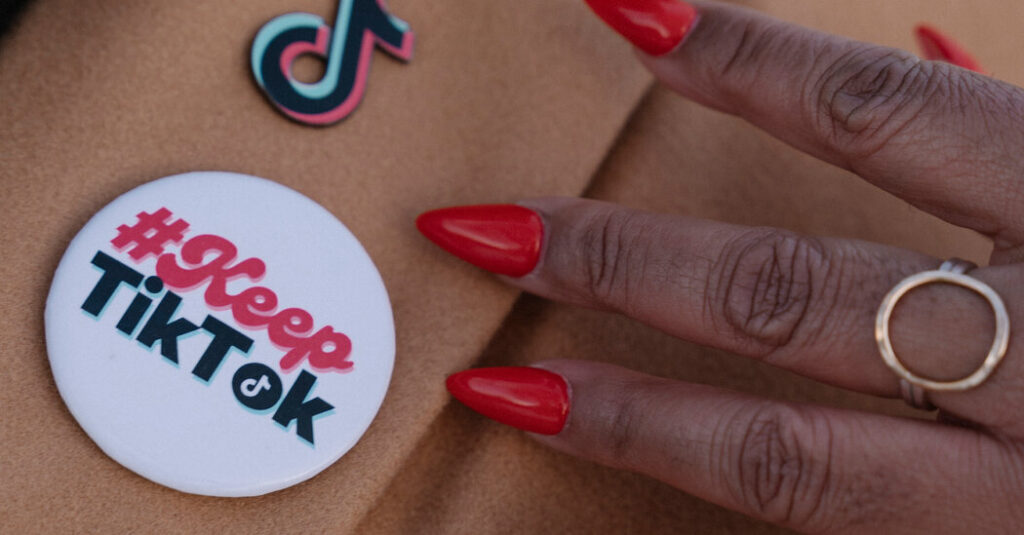For five years now, American officials have insisted that TikTok poses a grave national security threat — even if they couldn’t, or wouldn’t, lay out the evidence.
But as the case comes before the Supreme Court on Friday, pitting the government’s powers to protect the country against perceived threats against users who claim their First Amendment rights would be impinged by banning the app, the environment of cyberthreats has changed dramatically.
The Biden administration has accused China’s main intelligence services of burrowing deep inside the American utility grid and, more recently, into the complex networks run by nine of the country’s telecommunications firms. The first operation, they contend, is designed to give Chinese authorities the capability to turn off electric power or water pipelines in case of a military confrontation over Taiwan. And the second operation, called Salt Typhoon, has enabled Chinese intelligence agents to listen in on some phone calls and even get inside the government’s system for conducting surveillance of suspected spies.
Neither of those operations involved the TikTok app. But the fear inside the National Security Agency and the U.S. military, among others, is that the app itself could give a new pathway to sophisticated Chinese cyber-actors — which is why the app is banned from government phones.
So the very idea that more than 170 million Americans have voluntarily installed the TikTok app — and increasingly use it to absorb news as well as dance videos and other entertainment — drives most cyber-savvy senior government officials in the Biden administration crazy.
Senator Mark Warner of Virginia, until a few days ago the chairman of the Senate Intelligence Committee, declared TikTok could become “the most powerful propaganda tool ever.” As one exiting senior official described the problem the other day, why go to work every day to pull suspect Chinese malware out of the nation’s telecommunications system when a majority of Americans are happily going to the App Store and installing Chinese computer code, of mysterious origin, directly onto their iPhones and Androids?
But as the arguments play out in the Supreme Court on Friday morning, sorting out the threat — and what the government is really worried about — won’t be easy. Even in classified sessions, members of Congress say, the “TikTok threat” has only been described in the vaguest of terms. There is no smoking gun, no clear-cut case of the Chinese government’s exploiting the app to, say, influence an election or track the movement of key intelligence targets. (There have been some specific cases in which TikTok developers in China could gain access to personal information on Americans.)
So the argument about the risk will be described in hypothetical terms: The government fears that under Chinese law TikTok executives could be ordered to let disinformation seep into the app, and thus deep into the cerebral cortexes of several generations of Americans. In its arguments to the Court, the government made the case that because TikTok collects so much data on its users — their interests, their preferences, sometimes even their geolocation — that China could use the data for “espionage or blackmail” or to “advance its geopolitical interests” by “sowing discord and disinformation during a crisis.”
The Supreme Court has usually given a fair bit of leeway to the government to assess national security threats. And the government’s core argument is that the only way to mitigate the threat is to take the writing of the code for the TikTok app out of the hands of engineers working for ByteDance, the Chinese company that controls the platform and that develops the code in enormous secrecy in laboratories around the world. Instead, it would move to American soil, presumably out of the reach of China’s ministry of state security.
That isn’t a guarantee of course. If the China’s intelligence services can pierce the AT&T and Verizon networks, along with those of seven other telecommunications firms, how hard could it be to bore into a TikTok system that Chinese engineers designed? So in the end, the United States wants to do far more than simply separate the making of TikTok’s magic sauce from Chinese control. They want an early-warning system if the app is ever being manipulated.
This article was originally published by a www.nytimes.com . Read the Original article here. .

